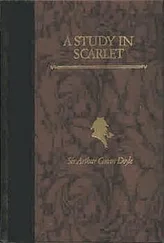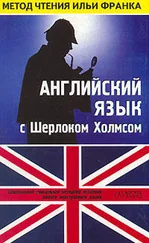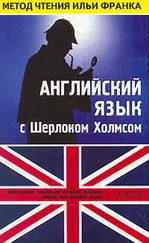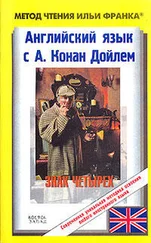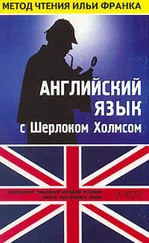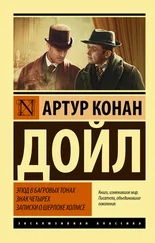"There was not a soul to be seen, nor a sound to be heard (не было видно ни души, не слышно ни звука) , except the dripping of the rain (кроме шума дождя; to drip — капать, падать каплями; стекать) . When I looked in at the window (когда я заглянул внутрь через окошко) , I found Drebber all huddled together in a drunken sleep (я обнаружил, что Дреббер спит пьяным сном, весь съежившись) . I shook him by the arm (я потряс его за руку) , ‘It's time to get out (время выходить) ,’ I said.
" ‘All right, cabby (хорошо, кебмен) ,’ said he.
exultation [,egzVl'teIS(@)n], year [jI@], [j@:], cigar [sI'gA:]
"It was nearer one than twelve, and a wild, bleak night, blowing hard and raining in torrents. Dismal as it was outside, I was glad within — so glad that I could have shouted out from pure exultation. If any of you gentlemen have ever pined for a thing, and longed for it during twenty long years, and then suddenly found it within your reach, you would understand my feelings. I lit a cigar, and puffed at it to steady my nerves, but my hands were trembling, and my temples throbbing with excitement. As I drove, I could see old John Ferrier and sweet Lucy looking at me out of the darkness and smiling at me, just as plain as I see you all in this room. All the way they were ahead of me, one on each side of the horse until I pulled up at the house in the Brixton Road.
"There was not a soul to be seen, nor a sound to be heard, except the dripping of the rain. When I looked in at the window, I found Drebber all huddled together in a drunken sleep. I shook him by the arm, `It's time to get out,' I said.
"`All right, cabby,' said he.
"I suppose he thought we had come to the hotel that he had mentioned (я полагаю, что он подумал, что мы приехали к гостинице, которую он назвал; to mention — упоминать) , for he got out without another word (так как он вышел, ничего больше не сказав) , and followed me down the garden (и пошел за мной по садовой дорожке) . I had to walk beside him to keep him steady (мне пришлось идти рядом, чтобы поддерживать его; steady — устойчивый) , for he was still a little top-heavy (так как он по-прежнему был немного навеселе; top-heavy — перевешивающий в верхней части; неустойчивый; пьяный) . When we came to the door, I opened it (когда мы подошли к двери, я открыл ее) , and led him into the front room (и провел его в переднюю) . I give you my word that all the way, the father and the daughter were walking in front of us (даю вам слово, что все это время: «всю дорогу» отец и дочь шли перед нами) .
" ‘It's infernally dark (темнота адская) ,’ said he, stamping about (сказал он, топчась на месте) .
" ‘We'll soon have a light,’ I said (скоро у нас будет свет, — сказал я) , striking a match and putting it to a wax candle which I had brought with me (зажигая спичку и поднося ее к восковой свечи, что я принес с собой) . ‘Now, Enoch Drebber,’ I continued, turning to him (а теперь, Инок Дреббер, — продолжал я, поворачиваясь к нему) , and holding the light to my own face (и поднеся свет к своему лицу) , ‘who am I (кто я) ?’
"He gazed at me with bleared, drunken eyes for a moment (мгновение он смотрел на меня мутными, пьяными глазами; to blear — затуманивать, делать неясным) , and then I saw a horror spring up in them (а затем я увидел, как в них вспыхнул ужас; to spring up — возникать) , and convulse his whole features (и судорогой пробежал по чертам его лица; to convulse — вызывать судороги, конвульсии; трясти, сотрясать) , which showed me that he knew me (из чего я понял: «что показало мне», что он меня узнал) . He staggered back with a livid face (он отшатнулся, побледнев; livid — мертвенно-бледный) , and I saw the perspiration break out upon his brow (и я увидел, что у него на лбу выступил пот) , while his teeth chattered in his head (зубы его стучали) . At the sight, I leaned my back against the door and laughed loud and long (увидев это, я прислонился спиной к двери и громко захохотал: «и захохотал громко и долго») . I had always known that vengeance would be sweet (я всегда знал, что месть будет сладка) , but I had never hoped for the contentment of soul which now possessed me (но я и не надеялся на то блаженство: «душевное довольство», что теперь на меня спустилось; to possess — овладевать, захватывать) .
hotel [h@u'tel], [@u'tel], convulse [k@n'vVls], brow [brau]
"I suppose he thought we had come to the hotel that he had mentioned, for he got out without another word, and followed me down the garden. I had to walk beside him to keep him steady, for he was still a little top-heavy. When we came to the door, I opened it, and led him into the front room. I give you my word that all the way, the father and the daughter were walking in front of us.
" ‘It's infernally dark,’ said he, stamping about.
" ‘We'll soon have a light,’ I said, striking a match and putting it to a wax candle which I had brought with me. ‘Now, Enoch Drebber,’ I continued, turning to him, and holding the light to my own face, ‘who am I?’
"He gazed at me with bleared, drunken eyes for a moment, and then I saw a horror spring up in them, and convulse his whole features, which showed me that he knew me. He staggered back with a livid face, and I saw the perspiration break out upon his brow, while his teeth chattered in his head. At the sight, I leaned my back against the door and laughed loud and long. I had always known that vengeance would be sweet, but I had never hoped for the contentment of soul which now possessed me.
" ‘You dog (ты, собака) !’ I said; ‘I have hunted you from Salt Lake City to St. Petersburg (я гонялся за тобой от Солт-Лейк-Сити до Санкт-Петербурга; to hunt — охотиться /на кого-либо; особ. с гончими/; гнать; преследовать) , and you have always escaped me (и ты всегда от меня ускользал) . Now, at last your wanderings have come to an end (теперь, наконец, твои странствия подошли к концу) , for either you or I shall never see to-morrow's sun rise (так как один из нас не увидит восход солнца: «так как или ты, или я никогда не увидит восход завтрашнего солнца») .’ He shrunk still further away as I spoke (он еще дальше отступил от меня, пока я говорил; to shrink — уменьшаться, сокращаться; сморщиваться; садиться /о материи/, давать усадку; отскочить; отпрянуть, отшатнуться) , and I could see on his face that he thought I was mad (и я мог видеть на его лице, что он думал, что я сошел с ума; mad — сумасшедший, ненормальный; бешеный, безумный) . So I was for the time (на время это так и было) . The pulses in my temples beat like sledge-hammers (пульс у меня в висках бил, как кузнечный молот) , and I believe I would have had a fit of some sort (и я думаю, что со мной случился бы какой-нибудь припадок) if the blood had not gushed from my nose and relieved me (если бы у меня из носа не хлынула кровь и мне от этого не полегчало бы; to relieve — облегчить) .
Читать дальше


